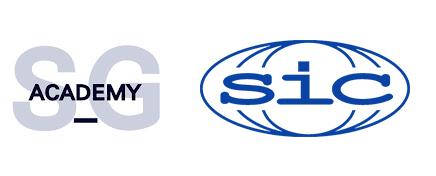Internal auditor of quality management systems for medical device manufacturers (ISO 13485, ISO 19011)
Participants will gain knowledge into various QMS components, including: leadership, risk management, required procedures, documentation, performance measurement, management analysis and continuous improvement, roles and responsibilities of internal auditors in planning and conducting audits, reporting, planning and monitoring of actions and measures based on audit results.
To enhance understanding, all course slides are voiced. Real-life cases will help participants better apply theory in practice. Structured information is divided into modules, making the learning process even more efficient.
In accordance with ISO 13485:2016 requirements, every company engaged in the production of medical devices is obligated to conduct regular internal audits to ensure product quality and safety. The presence of a qualified internal auditor is crucial to comply with these requirements and maintain the quality management system.
This course is an essenntial step for those aspiring to become highly qualified auditors and make a significant contribution to improving their company’s quality management system.
Duration
36 hours
Language
English/Ukrainian
Format
100% online
Course objective
Internal auditors verify whether the quality management system complies with the requirements of the ISO 13485 standard and specific normative requirements for medical devices.
Target audience
The target audience for the course “Quality Management System Manager for Medical Device Manufacturers (ISO 13485)” includes:
- Enterprise Managers: Individuals responsible for strategic management and decision-making regarding the implementation of the quality management system for medical devices.
- Quality Specialists: Employees directly involved in the development, implementation, and maintenance of the quality management system in medical device manufacturing.
- Middle Management: Individuals coordinating departmental work and ensuring that processes comply with the requirements of ISO 13485.
- Employees Involved in Certification Processes: Staff members participating in preparation for certification and surveillance audits.
Document on completion
QMS internal auditor certificate for manufacturers of medical devices, listed in the SIC international register
Thematic plan
The course program includes 2 modules:
1. Quality management system for medical device manufacturers (ISO 13485)
2. Internal audit (ISO 19011)
The program is designed for 36 hours, including time for studying theoretical material and taking tests.
Objectives
Internal Auditor of the Quality Management Systems for Medical Device Manufacturers (ISO 13485, ISO 19011)
| hours | ||
| І module Quality management systems ISO 13485 | 18 | |
| 1 | ISO 13485 standard: purpose, benefits, terminology | 3 |
| 2 | QMS: processes and documented information | 2 |
| 3 | Management responsibility: policy, planning, analysis | 3 |
| 4 | Resource management | 3 |
| 5 | Product realization and service delivery | 4 |
| 6 | Measurement, analysis, and improvement | 2 |
| Test | 1 | |
| ІІ module Internal audit ISO 19011 | 18 | |
| 1 | Audit classification and objectives | 3 |
| 2 | Audit terminology and principles | 4 |
| 3 | Audit program management | 3 |
| 4 | Audit conducting and reporting | 4 |
| 5 | Competence and personal qualities of the auditor | 2 |
| Test | 1 | |
| Case-reviews | 1 | |
